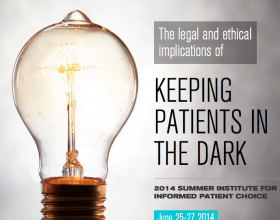
Patient and Caregiver at the Patient Power Myeloma Forum in Barcelona
When I was first diagnosed with chronic lymphocytic leukemia (CLL) in 1996, I just wanted the doctor to heal me. I dreamed of a magic wand that a healthcare provider could wave that would take the disease away as suddenly as it had appeared for me (even though it had probably been developing for years, I just didn’t know it!). No such luck, of course.
So what followed was a total disruption to my life. Fear, sleeplessness, psychological counseling, and a long procession of diagnostic tests and years of blood tests, IVs, and generally being a pin-cushion. Many people in white lab coats and uniforms have done many things to me, as they have to so many others.
One might wonder whether our role as patients today is simply to submit—that a passive role is good enough. After all, it requires so much strength to march from appointment to appointment, exam to exam. Go here, go there.
I would argue that today the passive patient, or at least the passive patient and his/her care support team, is likely to get the short end of the stick. Fear will be greater because you will be less knowledgeable about what’s going on and what is possible; you’ll have no chance to ask important questions, no chance to bring up something a provider has overlooked, no chance to sound an alert about a mistake (and there can be many), no chance to get a second opinion, no chance to participate in a clinical trial at another center, no chance to get support from others.
So whose responsibility is it to make you active rather than passive to be sort of an “impatient” rather than a “patient?” Yours! You have that choice. You can say “heal me” and roll over and pretend it’s all a bad dream. Or you can pick yourself up off the floor, put one foot in front of the other, and grab back some level of control. Believe me, it is all to the good, and I have seen that not just in my life but in most of the thousands of patients I have interviewed. The Andrew Schorr unscientific poll results are clear. If you accept responsibility to be an engaged. questioning, information-seeking patient; you have the best chance of doing better and feeling better along the way.
Cancer is not a bad dream. It is real life. Just as you take responsibility for other aspects of what you face, you gotta take responsibility for this journey, too.
Agree or not? Tell me what you think, and we always welcome the publishing of other points of view.





